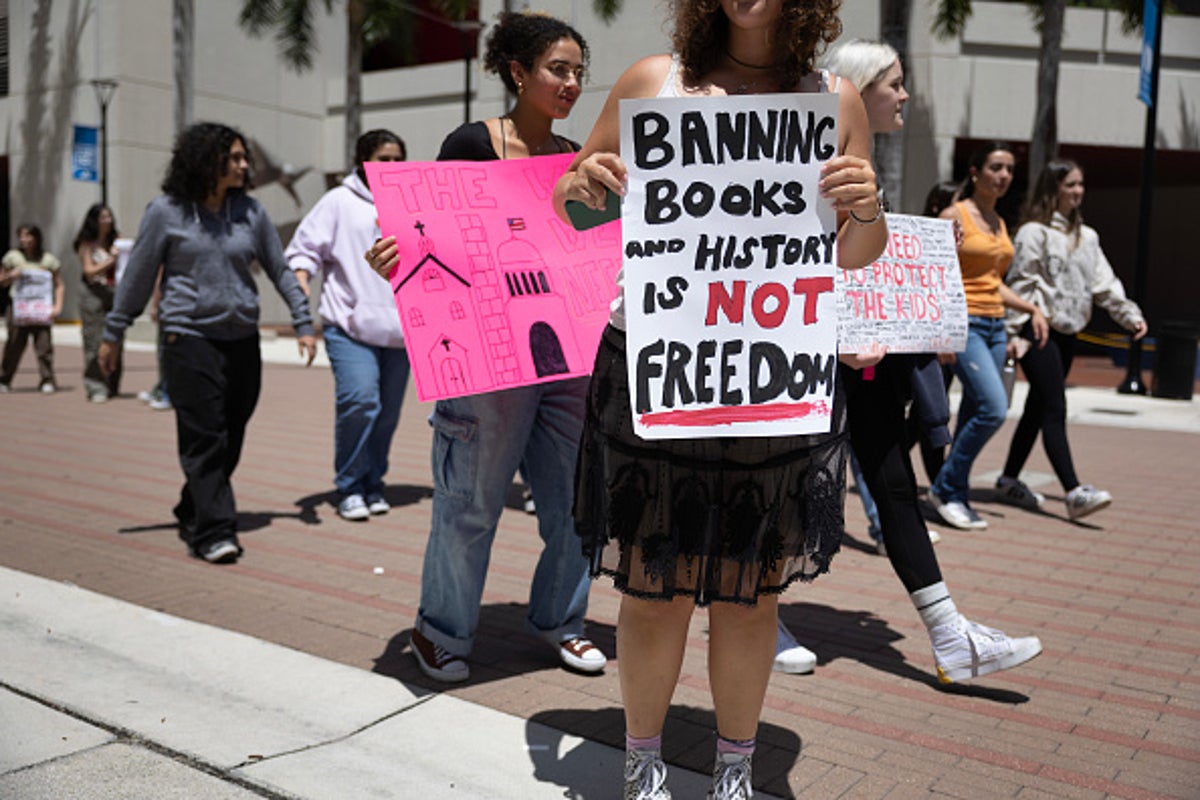
Many people, regardless of where they fall on the political spectrum, oppose book bans. Yet, the 2022-2023 school year has been uniquely defined by a movement to challenge more books.
Politically-motivated groups and lawmakers have targeted books that explore gender, race and sexuality in an effort to limit access to information and perspectives.
Books with these themes have been predominantly impacted by legislation in states with right-leaning leaders like Florida, Texas, Utah, and South Carolina. There have been more than 100 bills in 30+ states that threaten the availability of these books.
From July to December 2022, there was a whopping 28 per cent increase in the number of banned books than the previous six months, according to research from PEN America. What’s more is that, despite the increase in book bans, most people don’t actually want to see censorship in their libraries and schools.
A poll commission by the American Library Association (ALA) found that 71 per cent of voters oppose efforts to remove books from their local libraries.
“When we experience book bans, we are doing our children and our society a disservice because we are taking away the ability for our children to develop empathy skills,” Lessa Kanani’opua Pelayo-Lozada, President of the American Library Association, said in an interview with The Independent.
And students and children aren’t the only ones impacted. Ms Pelayo-Lozada says book bans can lead to fewer resources for veterans, unhoused people, families and businesspeople.
“We lose so much of our community and the space for our community to come together when we continue to allow book challenges to happen,” Ms Pelayo-Lozada said.
Luckily, there are actions that students, parents, teachers and people in communities can take to fight against book bans.
Read banned books
“The easiest thing that folks can do is to read banned books,” Ms Pelayo-Lozada tells The Independent.
Reading banned books can give people a better understanding of what information the book is offering, and why it is being banned.
In some cases across the country, books are being pulled from shelves and declared inappropriate without being read and examined for content.
A superintendent in Florida pulled 24 books that were deemed problematic by a conservative education advocacy group, not having read a single paragraph of any of the books.
“We constantly are trying to debunk the idea that any of these books that are being banned are ‘pornographic’ or ‘obscene,’ Because they are not,” Kasey Meehan, director of PEN America’s Freedom to Read Programme, told The Indpendent.
Ms Meehan says there are many instances of books remaining on shelves once they are read in their entirety because it helps combat misleading rhetoric concerning the book.
You can find a list of banned books to read here.
Reach out to your local officials
Though the movement to ban books is a nationwide problem, taking action against book banning begins at the local level.
The ALA’s Unite Against Book Bans initiative encourages people to speak with local officials, school board members, librarians, parents, students and teachers about the importance of access to all kinds of literature.
This can look like showing up to school board meetings prepared to speak out against book bans or requesting meetings with school administrators to share your concerns.
“What we’ve seen from those who have been successful is a really organized effort,” Ms Pelayo-Lozada says. “If they’re combating a challenge, showing up to board meetings, packing that room, having signs, having folks with prepared remarks go up to the microphone and speak to the impact.”
Ms Meehan recommends people write letters to their school board and speak with local librarians to understand how they make decisions about books.
Donate to organisations
One of the easiest ways to fight against book bans is by donating to organisations like PEN America and the ALA that provide research about book banning and support libraries.
Other organisations to donate to include the Anti-Defamation League, EveryLibrary, the Freedom to Read Foundation, the National Coalition Against Censorship, and more.
Get vocal
Be loud and proud when advocating against book bans by making your voice heard.
Whether it’s writing a letter to your local representative or writing a letter to the editor in your local newspaper, spread awareness about book bans and how they affect your community.
Social media is a great tool for students and community members to make themselves heard as well.
PEN America and the Brooklyn Public Library teamed up to offer students a four-week training programme in combating book banning- which created a new generation of voices to speak up about the issue.
“Each of those students sort of left as ambassadors for the freedom to read in their local schools and communities. And that itself was very impactful,” Ms Meehan said.
Vote
At the moment, legislation is one of the most powerful driving forces in book bans.
This means voting for representatives that will fight against those trying to ban books in schools and libraries is a crucial way to prevent books from being challenged both on the local level and state level.
Get to know your local school board, find out who’s running and what they stand for and then vote for the person who will keep books on shelves.
But perhaps most importantly, don’t start advocating for books after they’ve been challenged. Encourage others to read banned books, speak about the importance of freedom of speech, and support organisations working to reduce censorship.
“I think it’s really important that it needs to not just be reactive,” Ms Pelayo-Lozada says. “Don’t wait until a challenge comes to your community to take action.”







